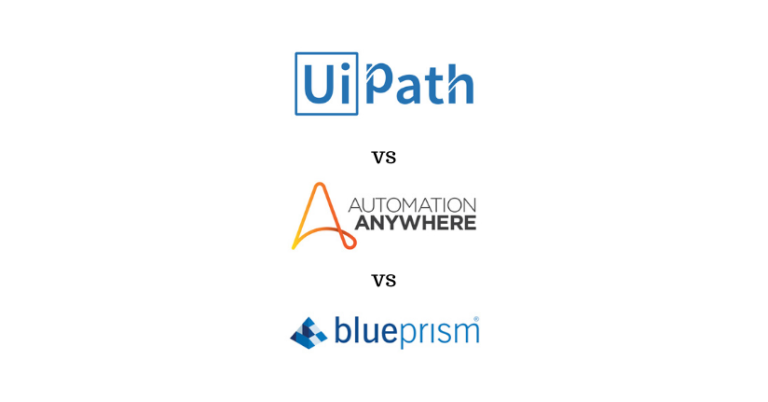Every company needs to go digital. To say the least. Digital transformation — neither a sprint nor a marathon — is a never-ending journey.
So, the question of whether organizations need digital transformation is off the table. The right tech-savvy talent to handle it is also a must-have. But to meet the challenges of digital transformation, lead the team and orchestrate the process, a new position is created — Chief Digital Officer (CDO).
Truth is, today’s companies can only be successful if they reach their customers via all possible channels. And that is unimaginable without getting involved in the field of digitization.
This post will try to explain the chief digital officer’s position, what responsibilities and skills are required for this role, when a company needs such a specialist and how to get one.
Table of Contents
What is a Chief Digital Officer?
A Chief Digital Officer or CDO is a C-level specialist who drives digital transformation in a company to ultimately transform a traditional business into a digital one.
This is how Deloitte defines this role, “The CDO is a catalyst and driver of change, bringing a new culture and mindset, and new ways of working to the enterprise, that would otherwise not have happened or would have happened too slow.”
Here are some responsibilities of a CDO, but these may vary from one organization to organization
- Bring culture change.
- Develop and integrate a digital strategy.
- Work with different teams to build and manage a digital ecosystem.
- Measure digital efforts.
- Identify new technologies such as AI that can support and enhance existing solutions.
- Attract talent.
The CDO profession is relatively new. The study conducted by Strategy& in 2018 suggested that 21 percent of large public firms had a CDO.
Leaders at many companies believe that putting a single person in charge of digital transformation may not be the best approach. As the responsibility for digitization lies in different departments, such as marketing or IT, the CDO role often doesn’t have clearly defined functions. It is mistaken for or even combined with other positions.
What Does a Chief Digital Officer Do?
“What does the Chief Digital Officer do?” It is a question that is often asked. The development and undertaking of digital strategies that comply with the company objectives is the work of a Chief Digital Officer.
This involves ensuring that the company is at the forefront of digital innovation by implementing new technologies, enhancing its customer experience online, and maintaining a strong position in this field. The CDO works closely with other executives to integrate digital solutions into traditional business processes, driving efficiency and growth.
This leads us to the question of where the CDO role fits in the C-Suite of companies and how it’s different from other positions.
Where the CDO fits in the C-Suite of companies
It is important to differentiate the CDO from neighboring, already existing C-Suite roles. We will use the closest positions, namely CIO, CTO and CMO.
However, keep in mind that in practice a detailed analysis will have to be carried out concerning all possible corporate areas related to digitization.
CIO vs CDO
Chief Information Officer (CIO) is a corporate executive in charge of implementing and managing information technology (IT) infrastructure and making sure the entire IT department works efficiently. They are also responsible for mapping out a business’s tech-related strategic goals. In some companies, their set of responsibilities extends widely, including digital transformation.
While the CDO takes on the strategic tasks and the direct business connection with the overall digitization course of the company. In big corporations, they often work together complementing one another’s roles.
CTO vs CDO
Chief Technology Officer (CTO) is a corporate executive responsible for creating and using the technology stack needed to promote business growth. The focus of CTOs is on external customers who are purchasing company products, tech operations within a company and ways to increase revenue and profitability.
While the CTO embodies a more outward-looking role, the CDO has a more inward-looking role in the company. They are considered problem solvers for existing technical problems.
CMO vs CDO
Chief Marketing Officer (CMO) is a corporate executive tasked with overseeing the planning, development, and execution of a company’s marketing and advertising initiatives. CMOs are often the catalysts for the digitization that drive the innovation agenda.
CDO supports the digital shift in marketing. They create ways to open up new markets and explore innovative opportunities.
Who does the CDO report to?
CDOs can be an extension of the marketing department, taking care of the digital part of promoting and selling activities. As such, they answer to a CMO (Chief Marketing Officer).
However, since a Chief Digital Officer usually belongs to the top management level (C-Level) and has far-reaching responsibilities, this specialist typically reports to a company’s CEO (Chief Executive Officer).
CDOs roles, responsibilities and essential functions
To move beyond vague, ill-defined or outdated job descriptions, organizations must be aware of the key responsibilities every CDO should handle.
1. Bring culture change
Digital change requires building a digital-first culture. CDOs support the company in reaching its digital transformation objectives by sharing and embedding their vision with the teams. Cultural changes will also include the introduction of new forms of work and the development of agile skills among employees.
2. Develop and integrate a digital strategy
Building a well-defined digital transformation strategy with a clear vision of what steps must be taken to achieve it is one of the CDO’s crucial responsibilities. A CDO works with cross-functional partners and teams, ensuring everyone is on the same page. It’s also a CDO’s job to integrate all relevant digital initiatives with a strategic-planning process for leadership commitment, appropriate allocation of resources and execute the plan.
3. Work with other teams to build and manage a digital ecosystem
A CDO works in collaboration with teams across the business to generate innovative digital solutions for processes, products, services, marketing channels, customer experience and business models. The CDO monitors the digital innovation project portfolio, while the deployment of projects may be the task of other executives and teams.
4. Measure digital efforts
A CDO will have to monitor all the projects and measure whether they are effective and bring value. These things can be measurable, so a CDO should calculate ROI and report the outcomes of the initiated digital projects.
5. Support and enhance existing solutions
The world of tech keeps changing rapidly with new solutions being created daily. A CDO must be informed of new technologies to help with setting goals. This can be anything from CRMs to AI-powered chatbots to IoT systems.
6. Attract talent
A CDO should work with the HR team to retain talent. The demand for digital innovation and transformation exceeds the supply of qualified specialists. Hence, a CDO can help recruiters find potential candidates to fill in the missing pieces in the staff puzzle.
Chief Digital Officer’s Job Description
The Chief Digital Officer job description typically includes several responsibilities.
These may involve:
- Digital Strategy Development: Developing and implementing a coherent digital strategy that is in line with business objectives.
- Technology integration: improving business processes and customer engagement by adopting new technologies.
- Data management: Ensuring data analysis is carried out in the organization and making decisions based on it.
- Customer Experience Enhancement: Developing digital solutions that enhance customer interactions and satisfaction.
- Cross-functional collaboration: to ensure that digital initiatives are integrated smoothly with other departments.
CDO’s background
Since CDOs should have expertise in both tech and business. In most cases, CDOs get promoted to this position from other C-level roles within the company.
The responsibility of the CDO is huge so it makes sense that most vacancies require more than 15-20 years of experience in this or related roles. In smaller-scale companies, though, the CDO functions are often undertaken by CIOs or even CEOs.
There is no specific degree course that can attribute the qualification of a CDO. The only things that matter are the multi-year experience in the related fields and “transformer” thinking. However, CDOs are required to hold a Master’s degree in business administration, computer science, marketing, communications, or a related field.
Skills and qualifications that make a good CDO
The specific requirements for a CDO skillset vary depending on the industry in which they work. Let’s look at the skills and qualifications of a good Chief Digital Officer.
1. CDO hard skills and qualifications
Business knowledge, in-depth understanding of digital structures, experience in project management and comprehensive know-how in areas such as big data, blockchain, AI, IoT make up the foundation of hard skills a CDO should possess.
- Business acumen. They must understand the corporate domain, evaluate the situation in the market, and determine profit opportunities.
- Extensive understanding of digital structures and products. A CDO always has his eye on the next new digital trend and decides whether it’s worth a company’s attention. They should be able to separate the trendsetting from the irrelevant.
- Broad technology awareness. A CDO must know how modern technologies work, including such areas as machine learning, data engineering, and IoT.
- Project management. Proven skills in project management especially in the IT area are among the top five most frequently mentioned CDO specialist skills. It’s a must for the CDO to be aware of the best practices and methodologies.
- Data understanding. CDOs must have an excellent understanding of end-to-end data processes as well as understand in detail how a data pipeline should be built in a company when implementing digital products.
2. CDO soft skills and qualifications
Let’s list the main soft skills contributing to the competence of the CDO.
- Communication. Both inside and outside the organization, the Chief Digital Officer must be able to convey digital processes and explain their benefits to everyone involved.
- High sense of responsibility and perseverance. A CDO must be courageous and responsible and must also have the perseverance to drive the transformation forward continuously.
- Leadership. The CDO must be a proven leader with experience developing and managing cross-functional teams. They direct, coordinate, and provide leadership to and review the work of professional employees to accomplish operational plans and results.
- Strategic thinking. CDOs must have extensive experience not only in leading IT-based business transformation but also building digital-driven business strategies and innovation. A good CDO is skilled at looking downstream and focusing organizational and team efforts on the big picture and long-term impactful initiatives.
3 questions to answer before hiring a CDO
Now that we’ve dealt with who CDOs are, what their job involves, and what skills are needed to fill in this position gap, it’s time to answer three fundamentally important questions, namely:
- When do companies need a CDO?
- Why is CDO worth attention?
- How does a company add a CDO role to its C-level board?
Chief Digital Officer Organizational Structure
To maximize the impact of their digital strategies, companies need to be able to understand what is called a chief digital officer organizational structure. The Chief Data Officer is usually in direct contact with the CEO or chief information officer. Within the organizational structure of a CDO, teams specializing in Digital Marketing, Information Technology, Data Analysis, and Customer Experience are often part of it. This structure allows the CDO to coordinate and lead Digital Transformation efforts across its organization.
When do companies need a CDO?
If you run a huge enterprise with multiple departments and your digital transformation is in its infancy, you should look in the direction of hiring a CDO or promoting one of your forward thinkers to this position.
However, smaller organizations with tighter budgets may rearrange their priorities with a CIO, CTO, CMO, or even CEO starting to take roles belonging to a CDO.
When bigger-scale companies have already got some sort of digital transformation going on, and a CDO’s tasks are handled by other specialists, then the need for creating a separate position disappears. Finally, small companies with no idea of where to start their digital transformation journey may decide to find someone who knows all the ins and outs of this subject.
Why is CDO worth attention?
Digitization is here to stay. Businesses need to invest in digital activities to stay competitive. The Chief Digital Officer (CDO) ensures that digital activities align with and support the strategy of the overall organization. Since many companies still have gaps in the adoption of the digital world, the CDO role will continue to be in high demand.
How to add a CDO role to the C-level board?
There are different variants of how the position of the CDO or “transformer in chief” can be anchored.
- Scenario 1: Creation of a new digital-focused department. With the appointment of a CDO to an executive level, a new department is created on the management board for the massive future-oriented expansion of digital capabilities.
- Scenario 2: Promotion of an existing manager role. The promotion of a top manager to be responsible for digital transformation makes it clear to the entire organization that the current strategy is reprioritized to digital. The organizational structure can remain largely unchanged.
- Scenario 3. Merging specialist teams. If digital projects are already widely distributed across the company, their managers can be brought together to form a digital team and share responsibility for their part of the work. In this scenario, structure and organization remain largely unaffected in this variant.
Whether or not you would want to hire a CDO would depend on your organization’s priorities and future expansion goals. It is important to note that a CDO plays more of a risk, compliance, policy management, and business role. It serves to drive information and data analytics solutions , serving a business purpose. In essence, the CDO serves as the glue between the data strategy and the metrics.













